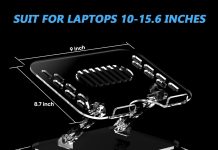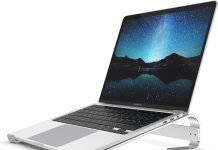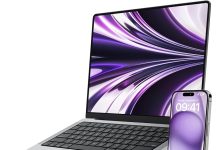Are you considering getting a new computer but unsure whether to go for a mini PC or a full tower?
It’s a common dilemma, and in this article, we’ll shed some light on just how upgradeable and customizable these two options are.
Whether you’re a tech enthusiast or a casual user, we’ll explore the pros and cons of each type of computer, helping you make an informed decision that suits your needs and preferences.
So, let’s dive in and uncover the world of mini PCs and full towers!
Review contents
Expansion Slots
Mini PCs
Mini PCs, also known as small-form-factor PCs, are compact and space-saving solutions for those prioritizing space efficiency. However, mini PCs often have limited options compared to their full-tower counterparts regarding expansion slots. Due to their small size, mini PCs typically have fewer or, in some cases, no expansion slots. This means the ability to add components such as graphics cards, network cards, or sound cards may be restricted.
Full Towers
On the other hand, full-tower PCs offer many expansion slots, allowing users to customize and upgrade their systems to a greater extent. Full towers boast a spacious interior and can accommodate multiple expansion cards simultaneously. This allows users to add graphics cards for improved gaming performance, sound cards for enhanced audio quality, and other expansion cards to fulfill specific needs or preferences.
In conclusion, while mini PCs are excellent choices for those with limited space, their lack of expansion slots limits how much they can be upgraded or customized compared to full towers.
Storage Options
Mini PCs
Regarding storage options, mini PCs often offer limited capacity due to their compact design. Most mini PCs come with a single 2.5-inch or M.2 slot for solid-state drives (SSDs). While SSDs provide fast performance and reliability, the limited storage capacity may be a drawback for users who require large amounts of storage for games, media files, or professional applications.
Full Towers
In contrast, full towers excel in terms of storage options. They usually feature multiple drive bays, including 3.5-inch and 2.5-inch slots, allowing for the installation of multiple hard disk drives (HDDs) or SSDs. This enables users to create ample storage spaces or even set up RAID configurations for enhanced data redundancy and performance.
In summary, if storage capacity is a primary concern, full towers offer a significant advantage over mini PCs with their ability to accommodate multiple drives and provide ample storage options.
Graphics Cards
Mini PCs
Graphics cards are essential for gamers or those working with graphic-intensive applications. However, due to their compact size, mini PCs often face significant limitations regarding graphics card compatibility. Most mini PCs employ integrated graphics built into the CPU or motherboard and lack a dedicated slot for discrete graphics cards. This results in restricted gaming performance and limited support for high-end graphics features.
Full Towers
On the other hand, full-tower PCs shine in terms of graphics card flexibility. With their spacious interiors and dedicated graphics card slots, full towers can install high-performance graphics cards. This allows users to harness the power of dedicated GPUs, enabling smooth gameplay, rendering capabilities, and support for complex visual effects.
To sum up, if you’re a gamer or graphics-intensive user seeking the best possible performance, Full Towers provides the ideal platform for installing powerful graphics cards.
Cooling Systems
Mini PCs
Cooling can be critical to any PC build, as excessive heat can impact performance and longevity. Mini PCs often face cooling challenges due to their compact designs. Limited internal space makes it challenging to incorporate robust cooling systems, leading to higher operating temperatures and potential thermal throttling. Sometimes, mini PCs rely on lower-power components to mitigate excessive heat generation.
Full Towers
In contrast, full towers excel in terms of cooling capabilities. Their larger size offers ample space for advanced cooling solutions such as large heatsinks, multiple fans, or liquid cooling systems. These cooling options enable better heat dissipation, ensuring optimal performance even under demanding workloads or extended gaming sessions.
In conclusion, full-tower PCs provide superior cooling capabilities to mini PCs. Full towers are the way to go if you prioritize efficient heat management and want to push your system to its limits.
Power Supply
Mini PCs
Mini PCs are designed with energy efficiency in mind, often opting for lower-power components to reduce energy consumption. Consequently, they tend to feature smaller power supplies ranging from 90 to 200 watts. While these power supplies are sufficient for basic computing tasks, they may pose limitations regarding more power-hungry components or overclocking capabilities.
Full Towers
On the other hand, full towers can accommodate larger power supplies, typically ranging from 500 to 1000 watts or more. These higher-wattage power supplies provide ample headroom for power-hungry components, multiple drives, and overclocking. This allows users to build robust systems capable of handling demanding tasks without encountering power-related limitations.
To summarize, if you have ambitious plans for your PC build, such as installing high-performance components or overclocking packed towers,’ excellent power supply options will meet your requirements more effectively.
Processor Upgrades
Mini PCs
Mini PCs often face limitations when upgrading the processor due to their compact designs. Many mini PCs utilize soldered or mobile-specific processors that cannot be easily swapped or upgraded. This lack of upgradability restricts the ability to improve overall system performance by simply replacing the CPU.
Full Towers
Full towers, on the other hand, provide excellent opportunities for processor upgrades. They typically support standard desktop processors that can be easily switched out or upgraded to more powerful options. This flexibility allows users to adapt their systems to changing demands or take advantage of the latest CPU technologies without needing an entirely new build.
In conclusion, if you value the ability to upgrade your processor down the line, full towers provide the necessary flexibility compared to mini PCs.
RAM Upgrades
Mini PCs
Mini PCs often face restrictions regarding RAM upgrades, primarily due to their compact designs and limited space for memory modules. Many mini PCs feature either soldered RAM or have limited slots available, resulting in reduced capacity for RAM upgrades. This can be a limitation for users who require extensive multitasking or engage in memory-intensive tasks.
Full Towers
On the other hand, full-tower PCs offer extensive RAM upgrade opportunities. They typically feature multiple RAM slots, allowing users to easily add or replace memory modules. This versatility enables users to increase their system’s capacity and performance by installing higher-capacity RAM modules or taking advantage of faster memory speeds.
In summary, full towers provide more flexibility and potential for RAM upgrades than mini PCs, making them ideal for users who require ample memory capacity or seek enhanced system performance.
Customization Options
Mini PCs
Mini PCs often have limited customization options compared to full towers, primarily due to their compact designs. While some mini PCs may allow users to customize specific components, such as storage or memory, the overall customization potential is limited. The compact size and integrated nature of many components make extensive customization challenging.
Full Towers
On the other hand, full towers excel in terms of customization options. With their spacious interiors and extensive compatibility with components, full towers allow users to personalize their systems to a much greater extent. Whether selecting specific components, adding custom water cooling loops, or implementing unique lighting effects, full towers offer endless possibilities for customization.
To sum up, if you desire to personalize and tailor your PC build to your preferences, full towers provide significantly more customization options than mini PCs.
Form Factor
Mini PCs
Mini PCs are designed with a small form factor, prioritizing space efficiency and portability. Their compact size makes them ideal for environments where space is limited, such as small offices or dorm rooms. Mini PCs can easily fit into tight spaces or be mounted behind monitors, offering a clutter-free setup.
Full Towers
Full towers, on the other hand, boast a more significant form factor. They are often taller and more profound than mini PCs, offering more room for components and expansion. While their larger size requires more space, full towers provide better airflow and cable management options due to the increased interior space.
In conclusion, the choice between mini PCs and full towers in terms of form factor depends on the available space and the user’s specific requirements. If space is limited and portability is essential, the compact form factor of mini PCs is advantageous. However, if expandability and airflow are priorities, full towers with their more prominent form factor are the ideal choice.
Portability
Mini PCs
Portability is a significant advantage of mini PCs. Their small form factor allows for easy transportation, making them ideal for users who require computing power. Whether you need a portable workstation for presentations or a compact gaming setup for LAN parties, mini PCs can be easily transported without sacrificing performance.
Full Towers
On the other hand, full towers are less portable due to their larger size and heavier weight. While they may be suitable for stationary setups, moving full towers frequently can be cumbersome and inconvenient. Full towers are better suited for users prioritizing performance and expansion over portability.
To conclude, if portability is a crucial factor in your decision, mini PCs are the winner. Their compact size and lightweight nature make them the go-to choice for users who require computing power while on the move.
In summary, both mini PCs and full towers have advantages and limitations regarding upgradeability and customization. Mini PCs excel in space efficiency and portability, while full towers offer more expansion slots, storage options, and customization potential. Choosing between the two depends on individual needs, whether prioritizing space, performance, or the ability to upgrade components in the future.
































